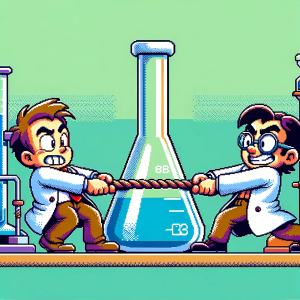
Psychological Predictions in the Time of COVID-19: A Deep Dive into Scientific Judgments and Their Accuracy
In a world constantly evolving and facing unprecedented challenges like the COVID-19 pandemic, the role of experts in guiding public opinion and policy becomes critical. A recent study titled “On the Accuracy, Media Representation, and Public Perception of Psychological Scientists’ Judgments of Societal Change” (link to article) sheds light on an intriguing aspect of this expert guidance: the accuracy of predictions made by psychological scientists during the pandemic.
The Premise of the Study
At the onset of COVID-19, psychological scientists often voiced predictions about societal changes in the media. These predictions, based more on intuition and less on their specific expertise, brought into question their accuracy and influence on public and policy decisions.
Key Findings: Accuracy of Predictions
- Experts vs. Lay Predictions: Surprisingly, the study found that psychological scientists’ predictions about societal changes were no more accurate than those made by laypeople. Neither their general expertise nor domain-specific knowledge significantly improved prediction accuracy.
- Retrospective vs. Prospective Judgments: When looking back (retrospectively) at societal changes, the accuracy of these scientists’ judgments improved slightly but was still comparable to that of laypeople. This suggests that experience with the pandemic did not markedly enhance their predictive abilities.
- Public Expectations: Despite their similar accuracy to lay predictions, psychological scientists were expected by the public to make more accurate predictions compared to other disciplines and were preferred for policy recommendations.
Implications for the Everyday Person
- Expert Opinion and Public Perception: The study underscores that expert opinions, especially in times of crisis, might not always be as accurate as the public perceives them to be. This calls for a balanced approach in considering expert predictions and maintaining a healthy skepticism.
- Media Representation of Expertise: The frequent media portrayal of psychological scientists making intuitive judgments, often outside their expertise, highlights the need for better media literacy. It’s important to understand the basis of any expert opinion presented in the media.
- Policy Making and Expert Advice: For policymakers, this study suggests a cautious approach when relying solely on expert predictions in psychological sciences for decision-making, especially in crisis situations.
The Study in a Broader Context
This study is not just about the accuracy of predictions during a pandemic. It’s about understanding the limits and potential biases in expert judgment, the role of media in shaping public perception, and the complexity of making accurate predictions about societal changes.
What Can Be Done Better?
- Improving Forecasting Skills: There’s a need for psychological scientists to develop better forecasting skills, perhaps learning from other disciplines and incorporating data-driven approaches.
- Media Responsibility: The media plays a crucial role in how expert opinions are presented. There’s a need for more responsible reporting that distinguishes between opinion, intuition, and data-driven expertise.
- Public Education: Educating the public about the nuances of expert opinion and the complexities of predicting societal changes can lead to more informed decision-making at an individual level.
Conclusion
The study offers a fascinating glimpse into the challenges of predicting societal changes in times of crisis. It urges us to question and scrutinize expert predictions, understand the limitations of expertise, and the role of media in shaping our perceptions. As we navigate through uncertain times, such insights are invaluable in making informed decisions both at an individual and policy level.
Stay Current with Scientific Developments
Dive into the world of science with “This Week in Science.” Our newsletter, tailored for educators and avid learners, is a weekly compilation of groundbreaking research, innovative findings, and inspiring stories from the scientific community. By subscribing, you gain access to a wealth of knowledge that can reshape how you teach, learn, and appreciate science. Sign up at no cost and start your journey towards a more informed and engaged relationship with science today.



